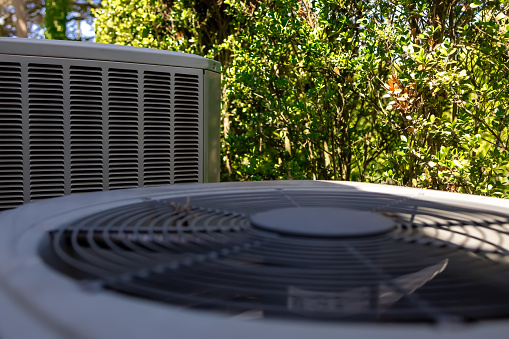
Winter is coming… But as the temperatures drop and the heat comes on in your house, the last thing you’re probably thinking about is your Air Conditioning. In fact, you may have already gotten it ready for hibernation by throwing a cover on it. And you’ll open it back up again when spring has sprung. That’s the responsible thing to do, right?
Wrong.
It’s ok, you’re not the only one who thinks they’re supposed to cover their HVAC all winter long. But we are here to tell you to stop. There comes a time and a place to cover your unit, and it’s not the winter. Here’s what you need to know.
Why You Don’t Need a Cover for your HVAC
In theory, it makes sense to cover your AC unit to protect it from the harsh winter elements — especially in PA where the snow and ice can get pretty brutal. But in reality, modern HVAC units were built to withstand those elements and tested against extreme temps and precipitation. They’re made with durable metal finishes to withstand snow, rain, and heat, and have built-in drainage to get rid of melting snow and slush.
In fact, not only is protection not necessary, but it can also actually be harmful to your system. Here’s why:
- Covers lead to rust.
You may be thinking that a cover will help you keep precipitation out. But it actually does the opposite. Plastic covers, like tarps, are made of non-breathable materials that trap in moisture and condensation. As a result, the inner workings of your unit will become susceptible to rust and corrosion, which can ultimately cause major damage to your system and require replacement parts.
- Covers cause mold.
Similarly, any additional moisture that gets trapped under the cover creates the ideal conditions for mold and mildew growth. There is no real way to completely prevent precipitation from entering the unit, so the last thing you should do is prevent it from drying out with a cover.
- Covers attract critters.
Sure, a cover may prevent wild animals from nesting in your unit. But a snug, air-tight cover actually creates a nice, warm retreat from the cold for bugs, mice, and rodents — which is a lot more likely. These creatures can fit into much smaller spaces than you probably realize!
So when should you cover your air conditioning?
Wait. Before you go and throw that outdoor cover away, there actually is a better time to use it: the fall. Covering just the top portion of your unit can be very helpful to keep leaves, twigs, and other falling debris from getting lodged inside, preventing issues in the long run.
Just make sure the cover is breathable and doesn’t fully cover the sides of your unit (maybe 6 inches or so at most). This way, the top of your unit will be protected, while still allowing air flow to keep from condensation getting trapped inside.
What you should actually do to prepare your AV unit for winter.
If this advice is coming to you a little too late, and your unit has been exposed all fall, head out there and take a look. A good winterization plan includes inspecting your system for leaves, pine needles, branches, animal nests, and other build up. If you are noticing some debris stuck in your system, contact Madsen to schedule an annual maintenance and make sure it doesn’t become a bigger issue once spring rolls around!
And remain cognizant of icicles that may form surrounding your unit. If these heavy chunks of ice fall and land on the unit, they can cause serious damage. If they’re not removable, try placing a thick piece of wood or some sort of study top cover for protection.
If you have some questions about your HVAC or would like a professional to come out and take a look, contact Madsen Inc today. We’re happy to help properly protect your AC unit throughout the seasons and get it ready to run as efficiently as possible when you need it most!




